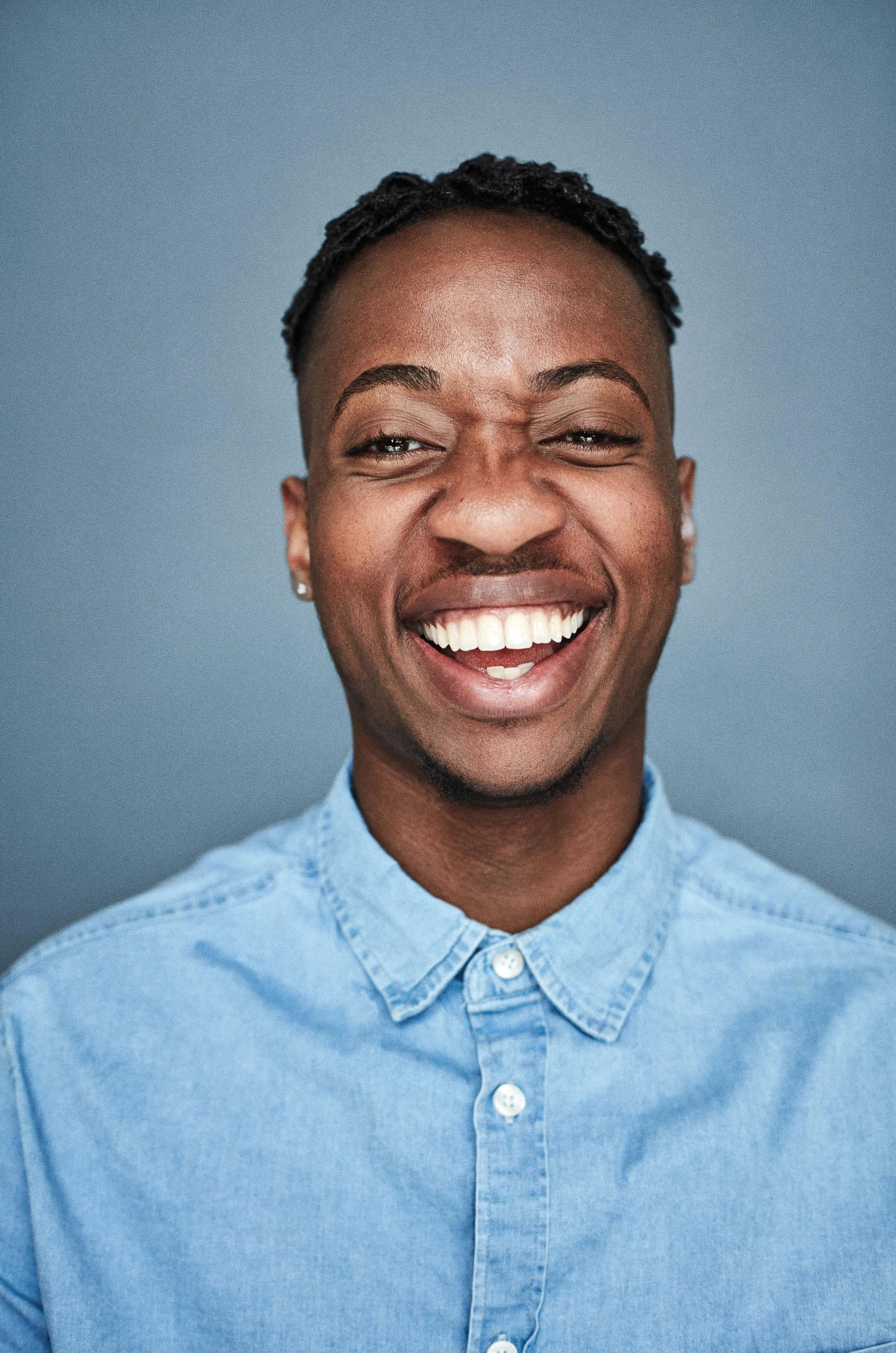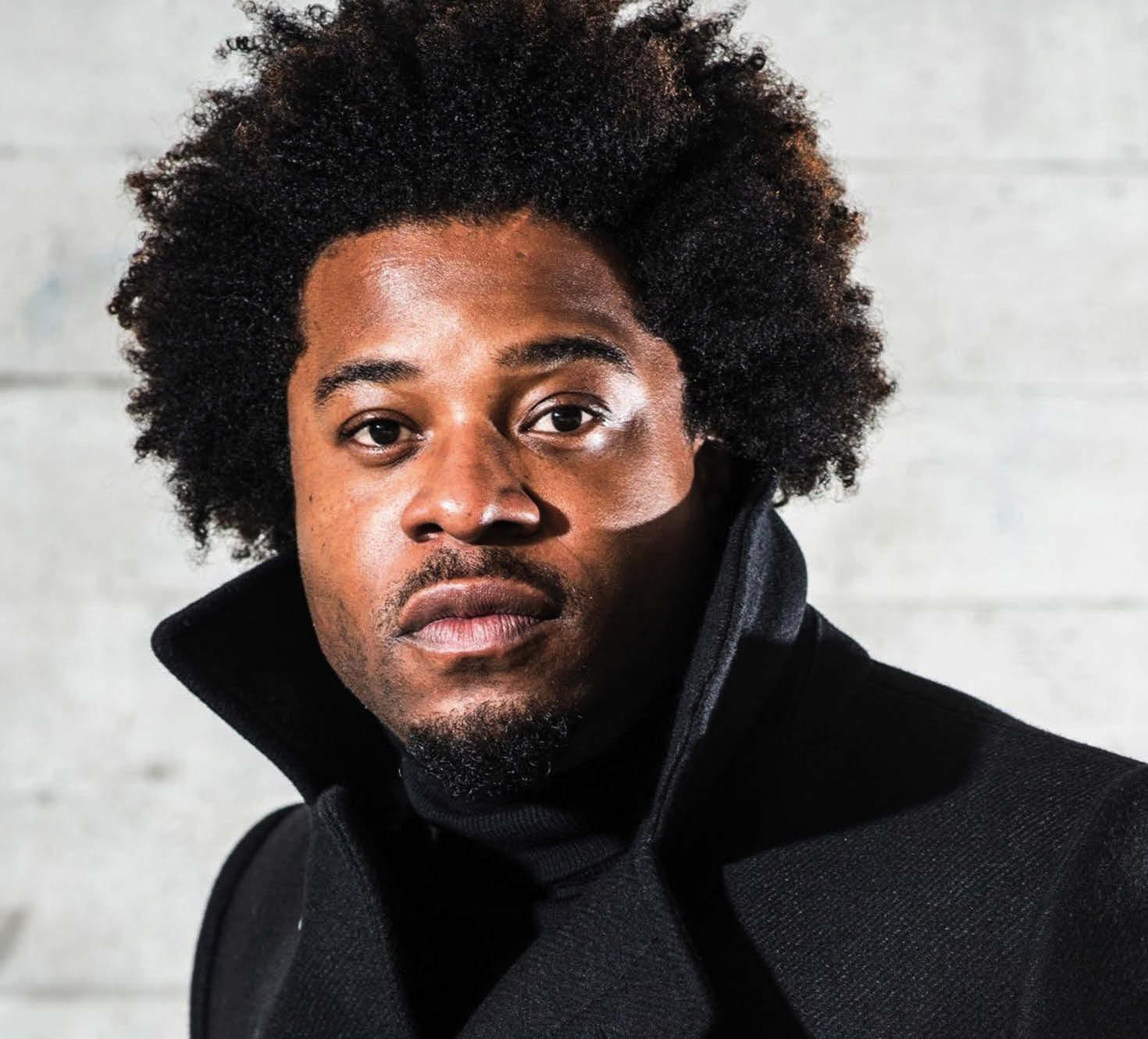LGBTQIA+ | 21
“On Our Own Terms”
KAMARI ROMEO ON TOYS, TRANS AND THE TRUTH Kamari Romeo is a London-based actor and producer who seeks to offer training and performance opportunities curated by underrepresented voices. His business Humblebee Creative Ltd offers fresh perspectives on minority voices through theatre, spoken word, live art, archiving and documenting practices. Humblebee’s Toybox is a 22-minute visual poetry album with music and puppetry, looking at experiences of British childhood. Written and performed by Romeo, Sirena Reynolds, Tobi, Tiahnna and Maya, Toybox endeavours to bring honest conversations into sharp focus via a series of short, filmed poems, performed to original music, in collaboration with five care leavers aged 20-27.
“A
fter my mother died suddenly in April 2018,” says Romeo, “I began to take an interest in the idea of deconstructing my childhood through the perspective of a child, piecing together the memories of my care experience. It suddenly felt more important than ever to delve into my history as a secondgeneration Zambian immigrant, growing up in England, playing with Chinese toys and watching American TV to figure out what parts of my multicultural upbringing I would hold on to as an adult out of the system. Through my mentorship with arts collective Lyrix Organix, I wanted to dissect how I could use poetry as a tool to communicate empathy, forgiveness and worth.” We got in touch with the performer, asking first if he’s been present at any of the protests following the appalling death of George Floyd, and how he feels he can bring about change. I haven’t attended any protests and have not ruled out the option. I fully support and encourage individuals fighting for equality in the ways they feel are appropriate, providing their expression of this protest is informed. At this time, it is really important for me to conserve my energy, preserve my mental health and stay focused on using my gift as a creative producer to make change in my community. There are so many types of work that need to be happening simultaneously in order to make this change; this includes visionaries, healers, educators, storytellers and frontline responders. Are you pouring any anger or sadness into your work? My projects are usually led by some form of
emotion and yes, anger and sadness does play a large part in the formation of those ideas. I do however believe that in order to be free from the control those emotions hold, you must find a balance between self-care, talking about your emotions outside of your work and having a focused approach to the work so that the lines aren’t blurred. I guess it’s part of the whole art as therapy vs. therapy as art debate. The answer will be different for everyone. Are there any ways in which incidents like George Floyd’s death affect BAME care leavers differently to other members of the BAME community? When we reference the ‘BAME’ community we include narratives on black, Asian and multiracial people (for the most part). The characteristics of an ethnic group by some definitions are considered to be very different from those that are common in western culture; some people have even argued that national minorities such as the Cornish, Welsh, Scottish and Northern Irish should be included in the definition. I wonder if traveller communities and maybe even refugees are considered BAME. I genuinely don’t know. Basically, the term has all the best intent but says everything and nothing. I can only speak on behalf of my experience as a black person but even then can’t speak on behalf of all black care leavers. Some people are raised with families/guardians that look like them and some are not; some have access to their cultures, heritage and history and some do not. I can speculate through my personal experience that maybe care leavers are doing slightly better during this time due to having a stronger relationship to loss. We spend a lot of our lives grieving for various things
For someone that makes her living as a writer, you would think JK Rowling would understand the nuances of language, discussion and identity JULY 2020 OX MAGAZINE





























